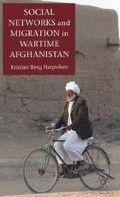Abstract
What is the role of social networks when people escape situations of war? What are the effects of social networks on integration in exile? And, further down the line, how do networks effect the decision to return — or not to return — home, and what is their role in reintegration at origin? Most generally, how do old networks evolve and new ones emerge as a result of migration in war contexts? The processes most commonly referred to as ‘forced migration’ — but also denoted by such terms as ‘refugee outflux’, ‘mass movement’, ‘exodus’, or ‘streams of displaced’ — are really the combined result of difficult decisions made by numerous human beings trying to make the best possible use of their resources under conditions of extreme constraint and on the basis of scarce information. In making such decisions, people pursue various paths of action, draw on a multitude of social networks, and build new ties as opportunities arise. Hence, social collectives strongly influence how political events beyond the control of any given individual translate into concrete responses. Every individual is affiliated with numerous other individuals through social networks, and those networks are key to who can gain access to various resources, including information, various types of material resources, and security. Networks are not alone in providing access to such resources; but, in situations of war — when the state and its institutions have often broken down, or turned against its citizens — informal networks gain in significance.
Access this chapter
Tax calculation will be finalised at checkout
Purchases are for personal use only
Preview
Unable to display preview. Download preview PDF.
Author information
Authors and Affiliations
Copyright information
© 2009 Kristian Berg Harpviken
About this chapter
Cite this chapter
Harpviken, K.B. (2009). Introduction. In: Social Networks and Migration in Wartime Afghanistan. Palgrave Macmillan, London. https://doi.org/10.1057/9780230234208_1
Download citation
DOI: https://doi.org/10.1057/9780230234208_1
Publisher Name: Palgrave Macmillan, London
Print ISBN: 978-1-349-36645-3
Online ISBN: 978-0-230-23420-8
eBook Packages: Palgrave Political & Intern. Studies CollectionPolitical Science and International Studies (R0)

